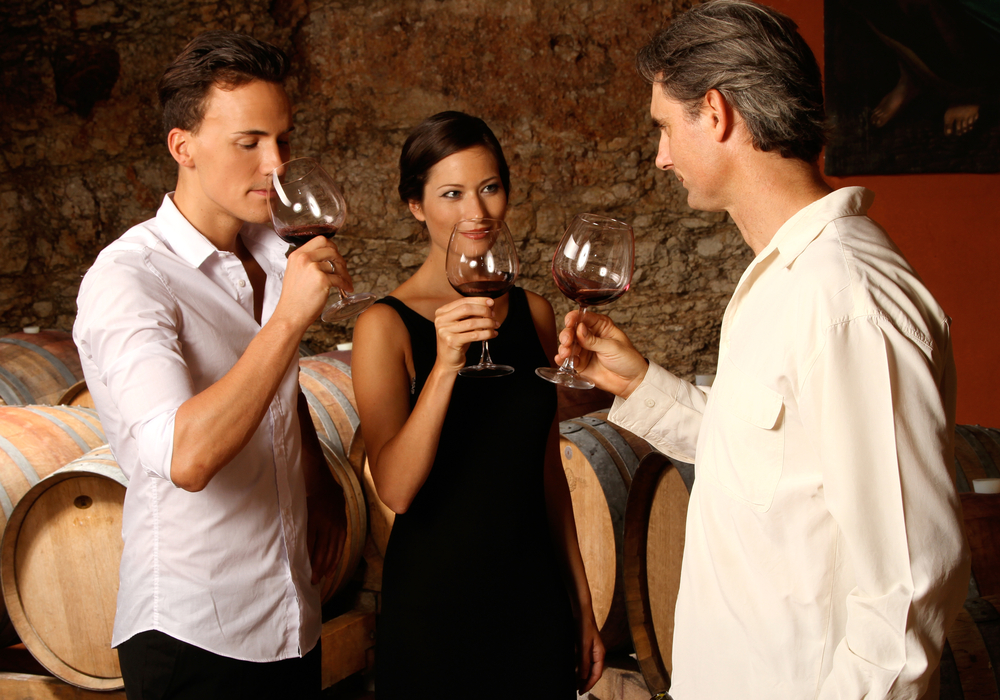People tend to find wine more enjoyable if they think it is relatively expensive. This isn’t conscious elitism though. Our brains simply work that way.
The perception that people like wine more if they believe it’s expensive has existed for years. In 2015, a scientific study proved it was true. Now, another study has begun to reveal which parts of the brain are responsible for this phenomenon.
Some past research has shown typical consumers tend to like inexpensive wine more than expensive wine. But those studies were based on blind tasting different wines and the tasters were not told the price of the wine. In essence, the study wasn't about perception of value or even wine quality, but perception of wine styles.
Those results were not surprising as inexpensive wine is more familiar to the average consumer and is designed to be pleasing to them —more fruity, smooth and, usually, sweet. On the other hand, more expensive wines will often be more savory and more tannic. The average consumer is unaccustomed to drinking such wines and naturally finds them less palatable.
The new studies took a wholly different approach though. The exact same wine was put in multiple glasses. Researchers told subjects the wines were different though, and that they had different prices. The point was to see if price alone makes a wine seem better. The results clearly showed that it does.

The nature of this study isn’t unique. Nor is the knowledge that one part of our brain can fool another. For example, several studies have proven people experiencing pain will get some relief from a placebo (a fake pill) they believe is a real pain reliever. Research has also been done on the effect of price and perception of quality in coffee and many other products.
The recent studies on wine and price do more than just confirm a hypothesis though. The test subjects were given MRIs in order to see how knowledge of price affected the brain. The MRIs identified which parts of the brain allow price to cloud our judgement. You can see an abstract of their study here.
This price-perception linkage is fairly consistent and doesn’t just pertain to wine. There are some interesting wrinkles though.
- In this latest study, they found the difference in perceived quality was driven more by thinking a cheap wine would be bad than that an expensive wine would be more pleasurable. In other words, people expect inexpensive wine to taste bad, and the brains plays along.
- The study also showed it didn’t matter if the subject had to buy the wine or got it for free. They were anticipating quality, not value.
- Previous studies have shown people with expertise in sensory analysis are less swayed by either price or marketing than the average person.
- These wine studies were conducted in western countries (Europe and the U.S.). Past research on other products, such as pharmaceuticals, show people in other cultures (such as China) may look more favorably on less expensive products. This suggests that the brain's behavior in this respect, though subconscious, may be a result of training rather than a tendency we're born with.
If you’re interested in this kind of research, I highly recommend books by behavioral economist Dan Ariely. They are interesting, entertaining and also provide tips on how you can modify your behavior to better enjoy life.
Speaking of enjoying life, you might want to have a glass of wine while you read them. Check out JJ Buckley’s broad selection of Pinot Noir, which I think pairs nicely with semi-technical literature.
JJ Buckley guest blogger Fred Swan is a San Francisco-based wine writer, educator, and authority on California wines and wineries. His writing has appeared in The Tasting Panel and SOMM Journal. Online, he writes for his own site, FredSwan.Wine (formerly NorCalWine), PlanetGrape, and GuildSomm. He teaches at the San Francisco Wine School. Fred’s certifications include WSET Diploma, Certified Sommelier, California Wine Appellation Specialist, Certified Specialist of Wine, French Wine Scholar, Italian Wine Professional, Napa Valley Wine Educator and Level 3 WSET Educator. In 2009, he was awarded a fellowship by the Symposium for Professional Wine Writers. In that same year, he was inducted into the Eschansonnerie des Papes, the honorary society of the Chateauneuf-du-Pape AOC.